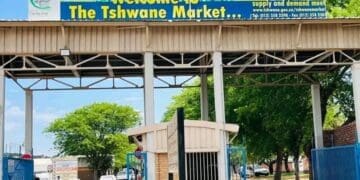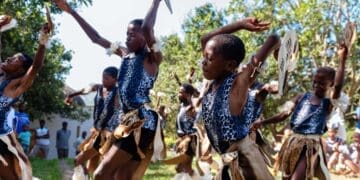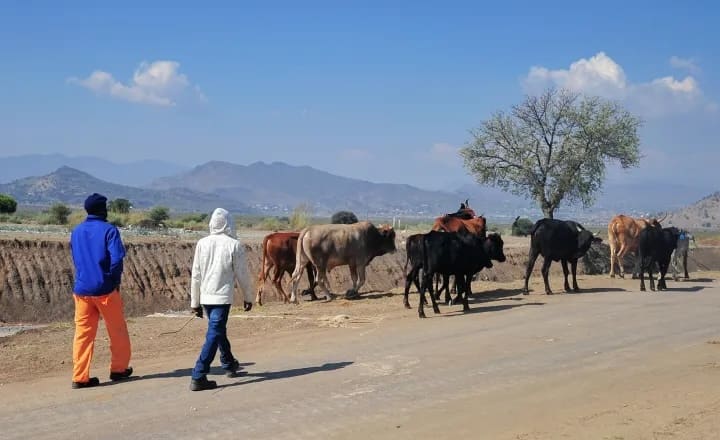The outbreak of foot-and-mouth disease (FMD) in KwaZulu-Natal has caused significant disruption for cattle farmers, with the highly contagious disease taking its toll in various districts.
Classified as a controlled animal disease under the Animal Diseases Act, FMD has forced the suspension of live cattle auctions and restricted the movement of cattle, severely impacting the livelihoods of farmers and the beef supply chain.
Agriculture and rural development MEC Thembeni Madlopha-Mthethwa said the districts that had been impacted were Amajuba, uMzinyathi, uThukela and Zululand.
“The recent outbreak has led to the suspension of all live cattle auctions, causing major disruptions in beef sales across the affected regions,” she said.
“Farmers in disease management areas are unable to derive any economic benefit from their cattle due to the movement restrictions.”
Mondli Zulu, who is the founder and CEO of Philisa Bonke Multi-Farming in Dundee, told Vutivi News that the restrictions had halted auctions and exports of cattle.
“Without the ability to sell or export cattle, farmers are struggling,” Zulu said.
He also highlighted the burden of medical costs as farmers must purchase expensive medication and antibiotics to treat infected cattle.
However, they were not permitted to vaccinate their animals if the disease was discovered on their farms. They were required by law to wait for officials from the Department of Agriculture to administer the vaccines.
Zulu also said that veterinary consultations required to export cattle were costly and this added to the financial strain.
He said the public veterinary services were overwhelmed and private services were prohibitively expensive.
“The situation is crippling for small-scale farmers,” Zulu warned.
The Black Farmers Association of SA (BFASA), led by Dr Lennox Mtshagi, has recognised the severe impact of FMD on both small-scale and commercial cattle farmers.
“FMD is severely affecting livestock productivity, market access and farmers’ livelihoods,” Mtshagi said.
He said BFASA was working closely with farmers to provide biosecurity advice, vaccination protocols and alternative income strategies to reduce the financial damage.
It was advocating for increased government support, including financial relief and more effective disease control measures.
BFASA is also exploring sustainable solutions, such as controlled feeding programmes and enhanced disease surveillance to protect cattle herds and stabilise the beef supply chain.
“Our goal is to assist farmers through these challenging times and ensure the long-term sustainability of livestock farming in the region,” Mtshagi said.
In the meantime, the MEC said her department has embarked on a mass vaccination drive for cattle within a 20km radius of affected areas, with ongoing vaccination efforts in places like Dannhauser and eMadlangeni.
The department has identified 73 dip tanks for vaccination and placed the affected dip tanks under restrictions to curb the spread.
However, it is facing ongoing challenges with infrastructure.
“We acknowledge the poor condition of our infrastructure, including dip tanks, and we’re addressing this issue. We’ve allocated R40 million to rebuild and renovate dip tanks and provide necessary chemicals,” Madlopha-Mthethwa said.
Veterinary service teams have been deployed to conduct vaccinations and disease control measures, while law enforcement agencies are monitoring roads to prevent the movement of cattle from infected areas. nosihle@vutivibusiness.co.za































































